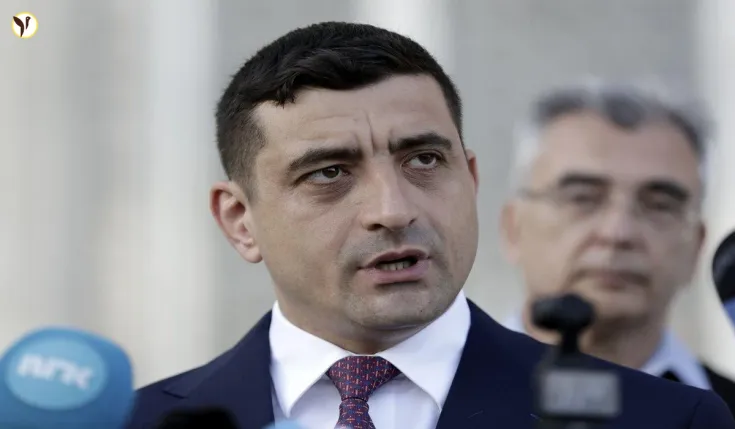Romania's Election Surprise: George Simion's Rise to Power
Romania's recent presidential election rerun delivered a shockwave across the political landscape. George Simion, the leader of the nationalist Alliance for the Union of Romanians (AUR), secured a commanding lead in the first round, defying pre-election polls and leaving the country poised for a dramatic shift in its political direction. His success, a testament to the power of populist messaging, rural discontent, and a savvy social media strategy, particularly on TikTok, has captivated international attention.
Simion's Unexpected Victory: A Nationalist Wave
With a near 41% share of the vote, Simion far outstripped his rivals, including Bucharest Mayor Nicușor Dan (who secured around 21%) and veteran liberal Crin Antonescu (around 20%). This stunning result catapulted Simion from a fringe candidate to a frontrunner, setting the stage for a high-stakes runoff against Dan.
- The role of TikTok: Simion's campaign cleverly leveraged TikTok, outperforming opponents in views and shares during the final stretch. His engaging videos resonated with younger voters, showcasing his charisma and populist appeal.
- Rural discontent: Simion's nationalist rhetoric and promises of restoring Romanian dignity struck a chord with rural communities feeling left behind by Romania's urban centers.
- Trumpian influence: Simion's open admiration for Donald Trump, his "Make Romania Great Again" (MAGA)-inspired messaging, and calls for a "Melonisation" of Europe (referencing Italy's far-right prime minister) attracted considerable support from voters longing for change.
The election rerun itself followed the annulment of the previous vote due to alleged Russian interference aimed at boosting a pro-Moscow candidate. This controversy, while contributing to widespread distrust in the system, ultimately paved the way for Simion's surge in popularity.
The Runoff: A Clash of Ideologies
The May 18 runoff between Simion and Dan represents a stark ideological clash. Dan, a pro-EU reformist, champions closer ties with Brussels and continued support for Ukraine. Simion, on the other hand, promotes a nationalist agenda, expressing skepticism towards supranational institutions and opposing military aid to Ukraine. This pivotal election will determine Romania's future geopolitical trajectory and its role within the EU and NATO.
- High stakes: Romania's president holds significant power over foreign policy, national security, and judicial appointments, making this election exceptionally consequential.
- International implications: A Simion victory could align Romania with other disruptive nationalist forces within the EU, potentially altering the bloc's dynamics.
- Domestic repercussions: Simion's win could lead to significant changes in domestic policy, affecting areas such as social issues, economic development, and governance.
Conclusion: Romania at a Crossroads
George Simion's surprising success highlights the growing influence of nationalism and populist movements across Europe. His campaign effectively tapped into widespread disillusionment with traditional politics and skillfully utilized social media to reach a broader audience. The upcoming runoff election is a critical moment for Romania, one that will determine whether the country continues its pro-European path or embraces a more nationalist, potentially isolationist, future. The outcome will send ripples far beyond Romania's borders.






